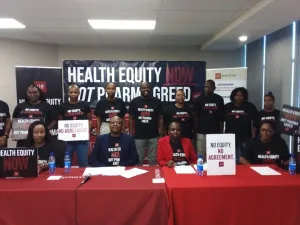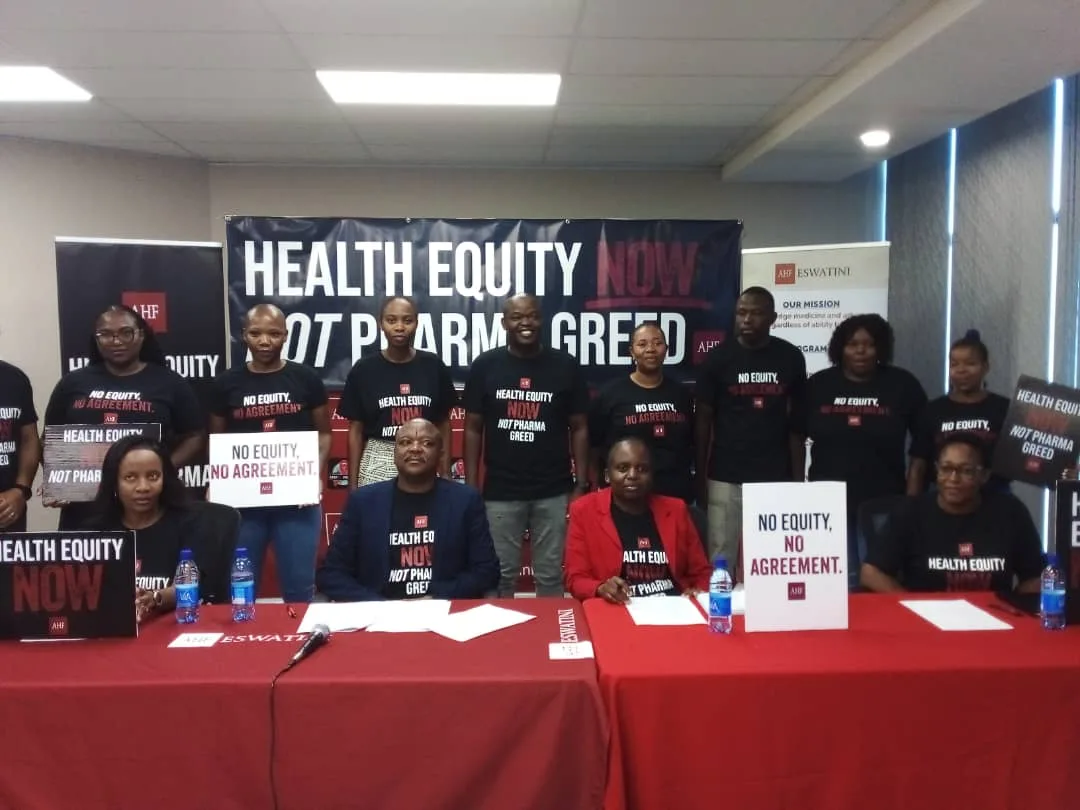By Thokozani Mazibuko
AHF Country Programme Director, Dr. Nkhululeko Dube has disclosed that the next pandemic is possible in 25 years.
Dr Dube has pointed out that it was important for countries and the World Health Organisation to iron out some underlying issues which were drafted into the Pandemic Agreement which were put to pen 2 years ago after Covid-19 pandemic.
ALSO READ: Huge boost for health in…
According to Dube, the civil society was not involved in the drafting of this agreement, an error which could plunge underdeveloped, developing countries into a more fatal era should it be adopted without having some parts of the agreement rectified.
“Should this agreement be adopted without involving the civil society, should another pandemic strike, less privileged countries would see a far worse situation than that of Covid-19,” Dr Dube said during a Press Conference on Wednesday in Manzini.
As the final Intergovernmental Negotiating Body (INB) meeting of the World Health Organisation (WHO) Pandemic Agreement approaches,

The AIDS Healthcare Foundation (AHF) and the AHF Global Public Health Institute are voicing significant concerns about the April 16, 2024, Proposal for the WHO Pandemic Agreement.
Speaking during a press conference held at AFH premises, Dr Dube further pointed out that this latest iteration of the text, which has been significantly watered down through the negotiation process, is filled with platitudes, anaemic in obligations, and devoid of any accountability.
He said falling victim to least-common-denominator policymaking in Geneva, this text in the agreement now lacks the requisite power to operationalise equity and achieve its intended objectives.
“We express profound concern that developed nations have vehemently defended the private interest of pharmaceutical companies over the collective common interest of achieving global health security in a sustainable and equitable manner.
ALSO READ: Opinion: Healthcare must put the…
Such disregard has been observed in the proposed compromise for the WHO Pathogen Access and Benefit-Sharing System, which the Lancet has described as not only shameful, unjust, and inequitable, but also ignorant,” he said.
He pointed out that under the present terms of the agreement, a mere 20 per cent of pandemic-related health products are guaranteed to the WHO in the event of a pandemic.
He said as the Lancet points out, such an arrangement will effectively leave 80 per cent of crucial vaccines, treatments, and diagnostics prey to the international scramble seen in COVID-19.


